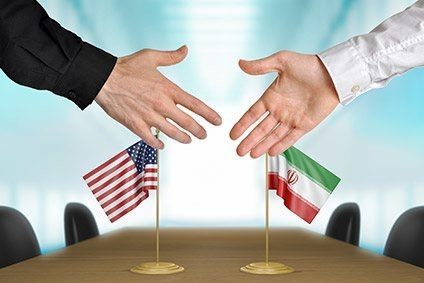
Iranian suppliers are not ruling out working with component producers in the UK or US following the recent Vienna nuclear talks agreement paving the way for normalisation of business relations.
Tehran has long been viewed as a pariah in the West, but the P5+1 group consisting of Security Council members, UK, France, Russia, China, US plus the non-permanent Germany, concluded the deal which will see severe restrictions on the possibilities of Iran producing nuclear weapons, in exchange for the lifting of extremely tough sanctions.

Discover B2B Marketing That Performs
Combine business intelligence and editorial excellence to reach engaged professionals across 36 leading media platforms.
France – through its long association with Iran in the guise of Renault and Peugeot – is regarded by many as at the head of the queue of Western companies at Tehran’s door but the Iranian Auto Parts Manufacturers Association (IAPMA) equally raised the potential of those nations which have had extremely challenging relations with the country of working with domestic suppliers in the future.
“There is no limitation from working with any other countries – we can work with also US – [Britain and America] why not?” IAPMA general secretary Sasan Ghorbani told just-auto from Tehran. “But [a] key point for our close cooperation with foreign partners is we have investment here. This [is] key to activity.
“If they [overseas suppliers] have proposals for core business here, I think there is some possibility.
“Of course European partners have more advantages than US, but in the future maybe we have new policy and cooperation.”
French supplier body, FIEV as well as Scandinavian component association, FKG, have both beaten paths to Iran recently, but one of the main obstacles to trading with the country has been access to finance on both sides of the formerly frosty divide.
Iran Khodro (IKCO) export deputy CEO told just-auto any lifting of sanctions could yet take a further six months as the Vienna deal passes through the forensic scrutiny of the US Congress, but should it see the light of day, normalised banking relations “will help us a lot.”
Hostile Republicans could yet scupper any approval of the nuclear deal, but President Barack Obama, perhaps keen to leave a series of grand legacy triumphs, has dropped heavy hints he may use his ultimate executive power and veto any Congressional reluctance to ink the agreement.
Rumours are also flying Iran could imminently see up to US$100bn in formerly frozen assets released, although more realistically this might translate into around $30bn, nonethless a tidy sum still desperately needed by a county starved of cash for so long.
“With sanctions, we have some problems, especially with money transfer to European countries,” said Ghorbani. “They [Iranian suppliers] shift to Korean companies or Chinese companies to try to find partners.
“Our final customers are not happy with parts from China, but we had no choice. But…with the new conditions most Iranian suppliers try again to come back to European suppliers to do business.”
Iran has been forced for many years to supply its own domestic automakers, IKCO and Saipa with its own components, leading the country to become less reliant on Western partners, but what is apparently needed is not so much hardware, often supplied by Russian, Chinese and Korean partners, as software, as well as what one manufacturer described as “know-how” in a country keen to catch up with its European rivals.
The scale of the opportunity is clear in Iran – a country whose potential – at the higher end of estimates – could see a 3m vehicle market as demand among its young and educated population for automobiles finally sees the light of day and as Western suppliers eye lucrative opportunities.
“When we are talking about suppliers, maybe from France or Sweden and any other country to start production here, we welcome them,” IKCO export deputy CEO, Ali Elmi told just-auto from Iran.
“I am talking quality whereas quantity, we have enough machinery and enough components but the point is [to] build know-how.
“Hardware, we have more than enough here. But software and know-how is what we need immediately.”
Renault declined to elaborate on what any sanctions easing could mean, with a spokeswoman from Paris confining herself to noting to just-auto: “Iran is important for Renault.”






